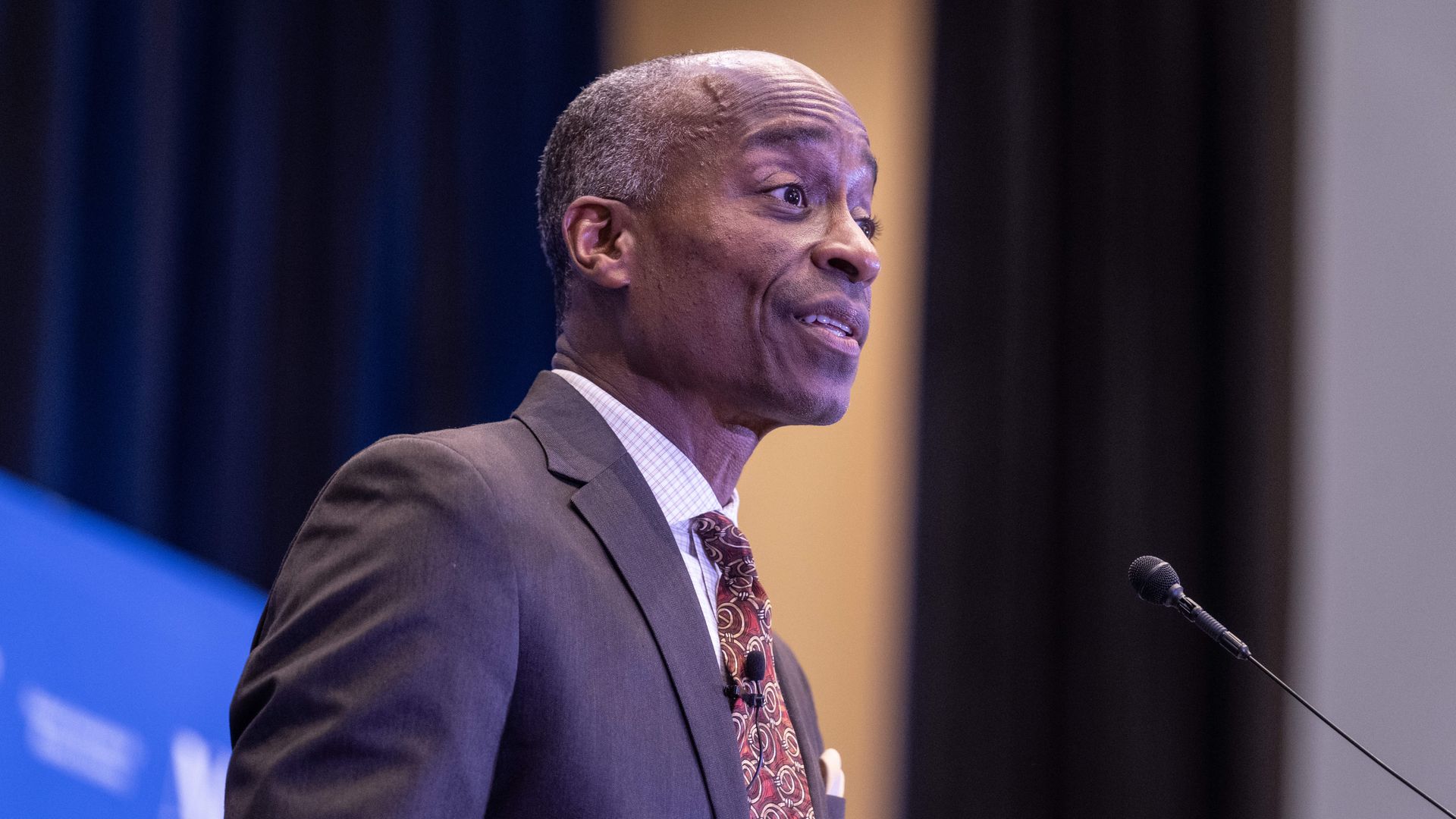Fed's vice chair: Here are the risks keeping us up at night

- Neil Irwin, author ofAxios Macro

Federal Reserve vice chair Philip Jefferson. Photo: Nitashia Johnson/Bloomberg via Getty Images
In his first speech since November, Fed vice chair Philip Jefferson laid out how he is thinking about policy and the direction of the economy. His key words: "vigiliant and nimble."
Why it matters: The No. 2 official at the central bank laid out the risks that are keeping him — and, it is fair to bet, his policy-setting colleagues — up at night. These things could still go wrong in a basically benign environment.
- It was, in effect, a warning against anyone who wants to believe this year's policy direction is set in stone.
- It was distinctly not policy triumphalism; his tone emphasized the need to adapt to continuing risks.
What he's saying: "Looking ahead, I see at least three key risks," Jefferson said Thursday at the Peterson Institute for International Economics.
- First, "consumer spending could be even more resilient than I currently expect it to be, which could cause progress on inflation to stall."
- "Second, employment could weaken as the factors supporting economic growth fade."
- "Third, geopolitical risks could remain elevated, and a widening of the conflict in the Middle East could have greater effects on commodity prices, such as oil, and on global financial markets," Jefferson said.
Flashback: Jefferson reviewed past moments when the Fed started cutting interest rates, as it is expected to do this year. He noted that problems that emerge suddenly and unexpectedly were a frequent catalyst for abrupt policy easing.
- That included the Persian Gulf War of 1991; the Sept. 11, 2001, terrorist attacks; the 2007 onset of the financial crisis; and the COVID-19 pandemic.
- "[H]istory is replete with events that complicate monetary policy decisions," he said.
Between the lines: The message to markets was that no one should think of the Fed as being on autopilot. While a handful of rate cuts starting in late spring or summer may be the most likely scenario, there's a wider band of possibilities than conventional wisdom may suggest.
The bottom line: "Will this time be different?" Jefferson asked. "My answer is, of course it will. Every time is different. But we can still learn from past episodes."